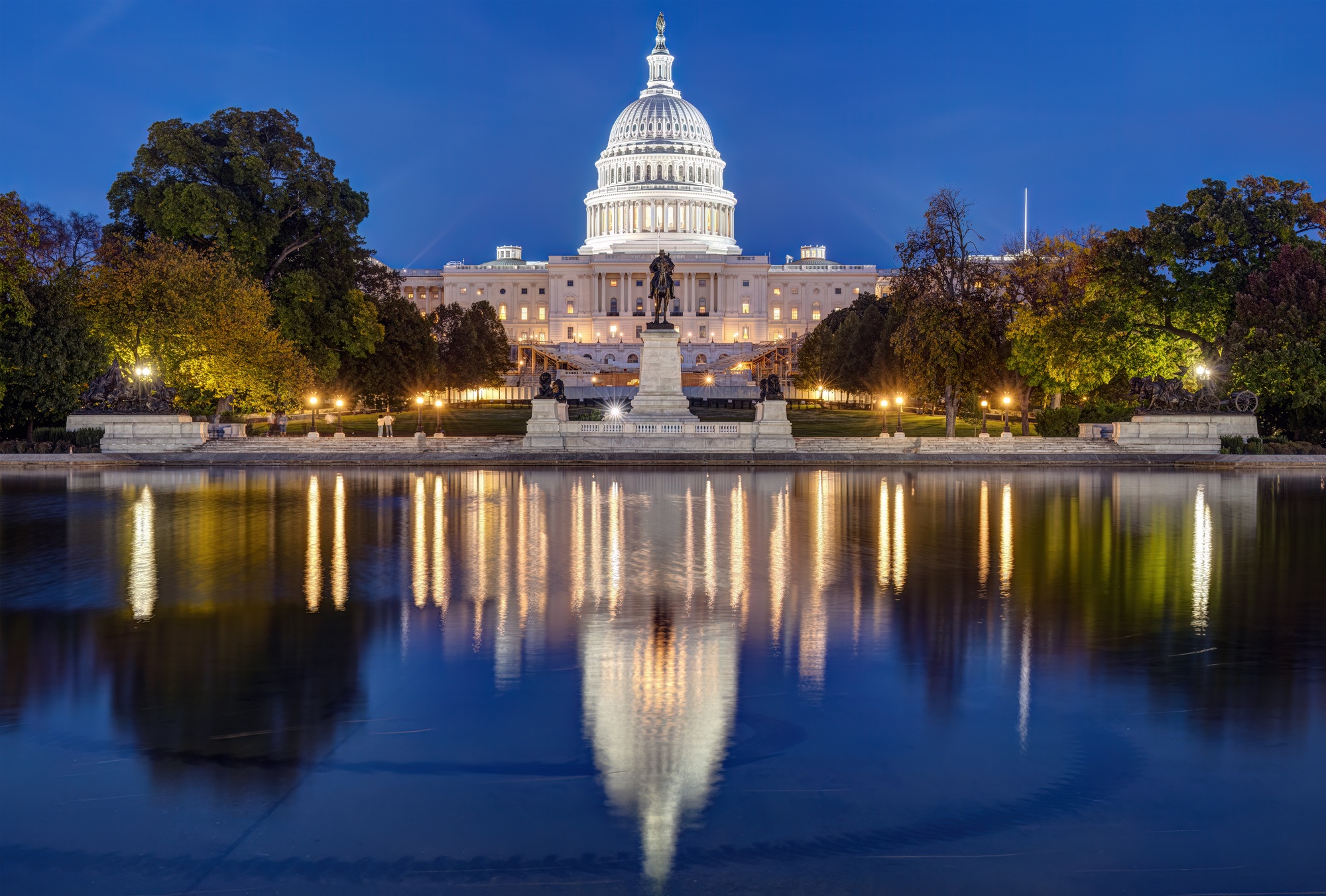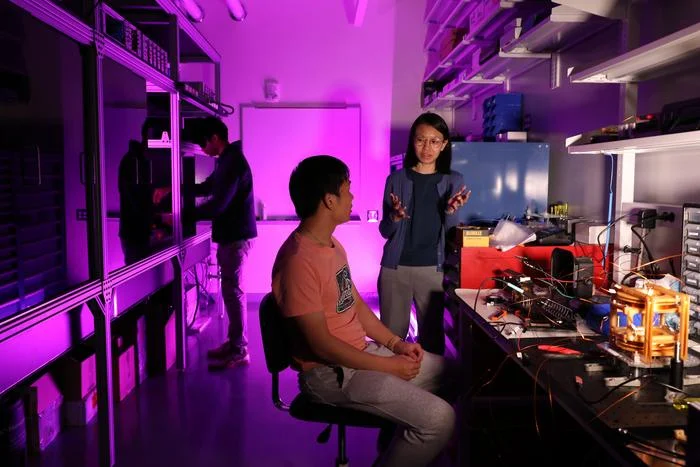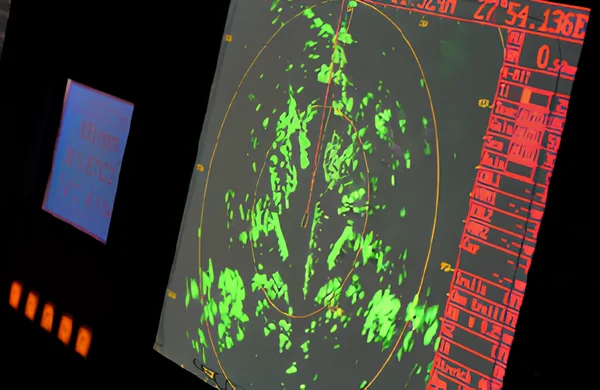Insider Brief
- The U.S. Senate is advancing a bipartisan bill, the DOE Quantum Leadership Act of 2025, to expand quantum research with over $2.5 billion in funding over five years.
- The bill aims to strengthen DOE’s quantum R&D programs through 2030, addressing supply chain challenges, workforce development, and interagency collaboration.
- Industry leaders, including PsiQuantum and IBM, support the legislation, which will likely move to the Senate Committee on Energy and Natural Resources for further debate.
The U.S. Senate is moving to boost the country’s quantum research capabilities with a bipartisan bill that would authorize more than $2.5 billion in funding over five years, according to Senate Democratic Whip Dick Durbin (D-IL).
The DOE Quantum Leadership Act of 2025, introduced by Durbin and Senator Steve Daines (R-MT), aims to expand quantum research and development (R&D) programs under the Department of Energy (DOE). The bill represents a significant increase from the now-expired National Quantum Initiative Act of 2018, which provided $625 million for DOE-related quantum programs.
“Between Fermilab and Argonne National Lab, our top-tier universities, and the new Illinois Quantum and Microelectronics Park, our state is poised to be a global hub as quantum computing takes center stage. I want to keep the momentum going by supporting the Department of Energy, and in turn, Illinois’ quantum researchers, in pioneering quantum technologies that advance computing, security, and connectivity,” said Durbin in a statement. “Senator Daines and I are introducing the bipartisan DOE Quantum Leadership Act to supercharge research, development, and commercialization of quantum technologies—technologies that will grow the medical, financial, and materials industries and create jobs along the way. With this legislation, we can ensure our DOE facilities are well-equipped to lead the quantum revolution.”

American Leadership in Quantum
Quantum technology uses the properties of subatomic particles to perform complex computations, secure communications and enhance sensor technology. Governments and companies worldwide are investing heavily in the field, aiming to unlock capabilities beyond what classical computers can achieve.
“America is a leader in cutting-edge science and technology, and in order to maintain our strong position, we must invest in research and development projects. Spurring innovation through the National Quantum Initiative Program will help strengthen our national security, create Montana jobs and accelerate quantum research projects,” said Daines in a statement.
The bill would reauthorize and expand DOE’s quantum R&D efforts through 2030, strengthening existing programs at five national research centers while launching new initiatives to address supply chain issues and workforce shortages. It would also direct the DOE to increase collaboration between government agencies and private industry to accelerate the transition of quantum technologies from research labs to commercial applications.
Industry Support
Among the industry leaders backing the legislation is PsiQuantum, a company focused on building large-scale quantum computers. “We strongly support the leadership of Senators Durbin and Daines for their re-introduction of the Department of Energy Quantum Leadership Act at this critical moment for scaling and commercializing quantum computing. PsiQuantum is already building the infrastructure for utility-scale quantum systems, moving this technology towards deployment,” said Professor Jeremy O’Brien, co-founder and CEO of PsiQuantum, in a statement. “The Department of Energy is a critical partner to PsiQuantum through our work with the SLAC National Accelerator Laboratory and other national labs in collaboration across government agencies. Quantum technologies will be essential for economic competitiveness and national security—advancing defense, securing critical infrastructure, and maintaining technological leadership. By strengthening the supply chain, expanding the workforce, and accelerating deployment, this legislation ensures the U.S. remains at the forefront of this critical technology.”
The bill has bipartisan backing, with Senate Majority Leader Chuck Schumer (D-NY), Lisa Murkowski (R-AK), Alex Padilla (D-CA), and Todd Young (R-IN) signing on as co-sponsors.
Supporters of the bill include IBM, Hewlett Packard Enterprise, D-Wave, EeroQ, the Quantum Economic Development Consortium, and the Quantum Industry Coalition, as well as major research institutions such as the University of Chicago, the University of Illinois System, and Northwestern University.
Advocates Take Next Steps
Durbin has been an advocate for quantum technology development in Illinois, which is home to key DOE research centers such as Fermilab and Argonne National Laboratory. Last year, he announced a partnership between the Defense Advanced Research Projects Agency (DARPA) and Illinois to create the Quantum Proving Ground, a new initiative to advance quantum computing research and commercialization. The state has committed $500 million to the Illinois Quantum and Microelectronics Park, a planned research campus that will house major quantum companies, including PsiQuantum.
The bill will likely now move to the Senate Committee on Energy and Natural Resources, where lawmakers will debate its provisions before it advances to the full Senate for consideration. If passed, the bill would authorize new funding streams for DOE-led quantum projects.
Now, a more immediate question: How long will this take? Unfortunately, it’s impossible to set a timeline for the legislation’s passage, if it is passed at all.
Lawmakers have not set a specific timeline for the bill’s passage, but similar legislation has taken several months to advance. The Department of Energy Quantum Leadership Act of 2024, a precursor to the current bill, was introduced in August 2024 and placed on the Senate calendar by November, though it did not complete the legislative process before the session ended. The reintroduction suggests renewed momentum, but the timeline for full passage will depend on committee reviews, potential amendments, and Senate scheduling. If prioritized, the bill could be enacted within the current legislative session.
A section by section of the bill is available here.
A copy of the bill text is available here.















